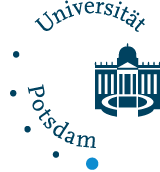BBIB Berlin-Brandenburgisches Institute of Advanced Biodiversity Research
Bridging in Biodiversity Science (BIBS) was built on the existing, long-term research strategies of the BBIB institutions. The overarching goal of BBIB was to bridge disciplines, scales and systems in biodiversity research. The BIBS project has constituted a core study within the BBIB framework, aiming to provide a proof-of-principle for the bridging approach.
BioMove Research Training Group
BioMove is a DFG Research Training Group that integrates Biodiversity Research with Movement Ecology since 2018. BBIB partners from University of Potsdam, Freie Universität Berlin, the Leibniz Institute for Zoo- and Wildlife Research, and the Leibniz Centre for Agricultural Landscape Research combine their strenghts in field and lab experiments, simulation modelling, and theory. Acknowledging that movement is key to biodiversity, BioMove projects focus on all possible taxa. Yet, all research is centred around the AgroScapeLabs in northern Germany to foster theory advancement and development, and joint interdisciplinary projects among doctoral candidates.
DFG Priority Program DynaTrait
DynaTrait is a Priority Program of the German Research Foundation (Deutsche Forschungsgemeinschaft: DFG) entitled: “Flexibility Matters: Interplay between Trait Diversity and Ecological Dynamics Using Aquatic Communities as Model Systems (DynaTrait)” (SPP 1704). In DynaTrait, over 60 researchers work together in 13 subprojects on different focal subjects.
DynaTrait stands for dynamic traits, that is, functional traits of species which are measured at the individual level and scale up to influence ecosystem functioning at ecosystem level. The dynamics of food webs strongly depend on such functional traits of its involved organisms. These traits change over time in dependence of other organisms in the food web, which form relationships with each other.
Individual-based Ecology
The Individual-based Ecology network is a research initiative launched by the University of Potsdam. Scientist from 28 working groups and eight universities and non-university research institutes, most of them part of the BBIB consortium, combine their strenghts spanning different ecological disciplines, physics, data sciences and artificial intelligence, computer simulations, and social sciences and digital education.
